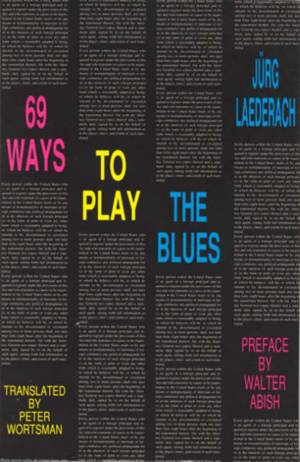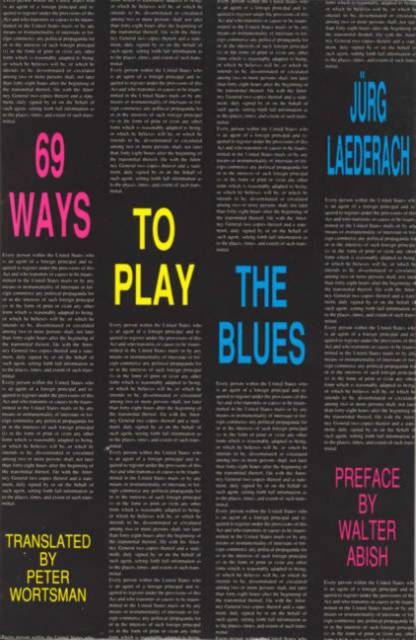
- Retrait gratuit dans votre magasin Club
- 7.000.000 titres dans notre catalogue
- Payer en toute sécurité
- Toujours un magasin près de chez vous
- Retrait gratuit dans votre magasin Club
- 7.000.0000 titres dans notre catalogue
- Payer en toute sécurité
- Toujours un magasin près de chez vous
Description
Like Alain-Robbe Grillet, Georges Perec, and the great Oulipo writers, Swiss writer Jurg Laederach constructs seamless narratives based on sly compositional strategies.
The phone refuses to ring. I sit here on 82nd Street; no, on 83rd; no, on 81st; I forget where I am. The phone refuses to ring, to tear me out of this enforced solitude, which I know only too well. This solitude that makes me sick and stirs me to tears, but surely not tears of compassion. A call is bound to come any minute now up from the Village and afford me the company I desperately desire. The phone isn't ringing. The bell doesn't work.
Written after the Swiss writer Jurg Laederach's third trip to New York in the late 1980s, 69 Ways was hailed by award-winning author Walter Abish as a text predictive of a Europe to come, when borders dissolve. Like Alain-Robbe Grillet, Georges Perec, and the great Oulipo writers, Laederach constructs seamless narratives based on sly compositional strategies. The reader is only somewhat aware of the rules of the game. Transposed to America, Laederach's texts, Abish argues, function as a scanning device. Characters vanish, reappear. There is something relentless... Everything is transitory. No sentimentality. No clinging to the past. Everything is on the verge of being discarded. Everything is on the verge of dissolution. Everything resonates with imminent change.
Spécifications
Parties prenantes
- Auteur(s) :
- Editeur:
Contenu
- Nombre de pages :
- 160
- Langue:
- Anglais
- Collection :
Caractéristiques
- EAN:
- 9780936756622
- Date de parution :
- 01-11-90
- Format:
- Livre broché
- Format numérique:
- Trade paperback (VS)
- Dimensions :
- 116 mm x 179 mm
- Poids :
- 131 g







